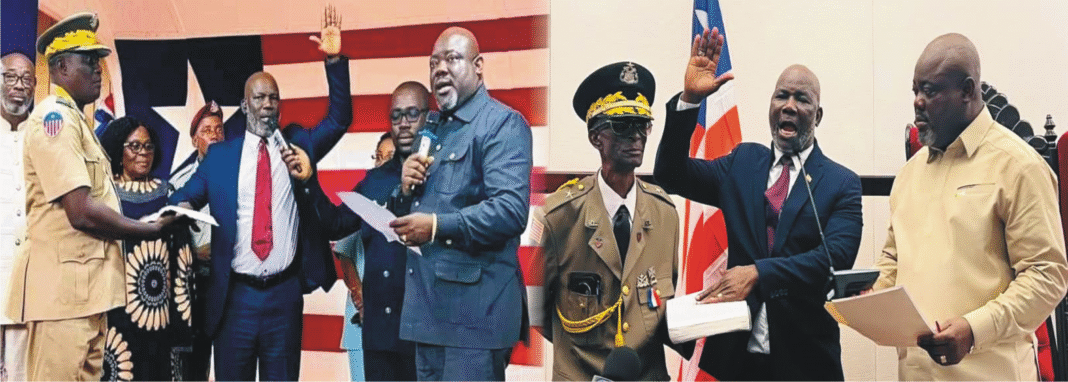By Festus Poquie
The political saga that gripped Liberia for the better part of seven months has both encouraging and discouraging chapters. Speaker Fonati Koffa’s resignation and the subsequent election of Richard Nagba Koon have brought to the forefront the complexities of democracy in a nation still dealing with its tumultuous history.
This crisis, rooted in the struggle for control over the national budget or riches has exposed two contrasting faces of democracy: one of authoritarian excess and another of resilient resistance.
At the center of the turmoil was the ruling party’s desperate attempt to gain control over the House of Representatives, which had become a bastion of opposition power.
The political maneuvering reached a climax when Richard Koon, with open backing from President Joseph Boakai seized control of the Speaker’s office in November 2024.
During Koon’s illegitimate reign, everything about governance and democracy collapsed. He made an unconstitutional hand gesture in place of the usual oath-taking symbolizing the troubling realities of power dynamics and the dark climate besetting democratic and constitutional norms.
For nearly half a year, the country witnessed a disarrayed legislative body, one where laws and national budgets were enacted under questionable authority. The Supreme Court would later deemed these actions illegal. Koon received hefty salary and benefits that he was not qualified for under the laws of the country. Millions of tax payers’ money spent to make him Speaker of the House of Representatives.
The conflict showcased a governance model that critics, including law professor Tiawan Saye Gongloe, characterize as an affront to the rule of law.
Gongloe’s concept of ‘legalized theft’ best explains the actions and policies of state actors during the nearly 200-day siege on the nation’s democracy.
“This is not good governance. This is legalized theft,” he said.
Gongloe’s remarks resonate deeply within a populace weary of political patronage and corruption. The growing divide between the ruling elite and ordinary citizens, compounded by lavish expenditures on luxury vehicles and inflated salaries for officials, signifies a misalignment of democratic values with the lived experiences of many Liberians. “What kind of country is this?” he posed rhetorically, challenging both the current government and its democratic pretenses.
The turbulence in the House was not simply a battle over positions; it was a struggle for the very essence of democracy itself.
As the political winds shifted, President Boakai’s administration found itself on the defensive, igniting accusations of an “imperial presidency” that blatantly disregarded the judiciary.
The President’s refusal to comply with the Supreme Court’s ruling, a direct challenge to the Court’s authority.
After sustained pressure from opposition forces and vigilant citizens rejecting Koon’s prior illegitimate claim to the Speakership, the regime finally relented, allowing for a new election.
This marked a pivotal shift, as Koon was elected Speaker not by force but through a process that, albeit contentious, adhered to democratic norms.
In this second attempt, he raised his right hand to take the electoral oath—symbolizing a triumph of democratic principles over the autocratic tendencies that had previously marred the House.
Pro-democracy activist Mulbah Morlu, reflecting on the chaos, proclaimed on social media:
“Speaker Koffa’s resignation is no resignation. it’s a coup fully financed by Boakai, and the people will fight back!
“Liberia’s democracy will never bow. Not to Boakai, not to any weak & wicked elder craving to be Kim Jong Un. Liberia is no North Korea!”
The contrasting narratives of autocracy and democracy in Liberia underline the delicate balance that leaders must maintain—a call for unity amid division.
As Richard Koon steps into his role as Speaker, the onus is now on him and the ruling party to foster an environment where the will of the people is prioritized over power struggles.
Law professor Gongloe’s assertion that unity can only be achieved through “equity, humility, and respect for the rule of law” resonates deeply within this context.
The true reflection of democracy lies not just in the ceremonial transfer of power but in the commitment to principles that elevate the lives of all citizens.


